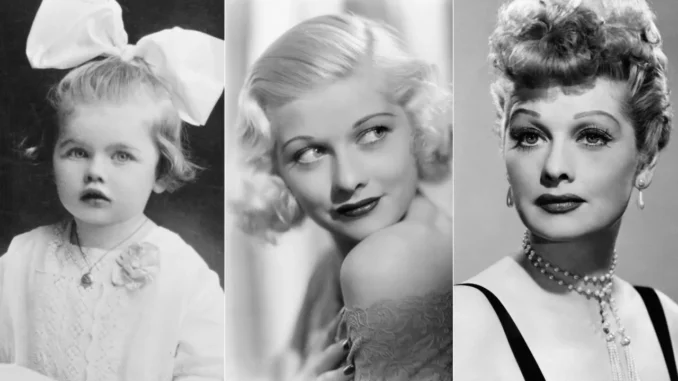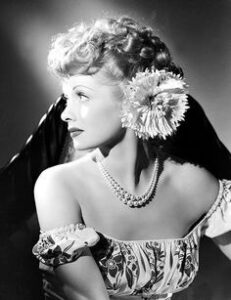
Introduction: Lucille Ball’s Legacy as More Than a Comedian
Lucille Ball wasn’t just a comedic genius; she was a trailblazer who understood the recipe for television magic. While most fans of I Love Lucy adore the hilarious antics of Lucy Ricardo, few know the rigorous behind-the-scenes rules Ball imposed to keep her show running smoothly. These guidelines weren’t just about discipline—they were the backbone of a series that redefined comedy and set the gold standard for television.
But what were these rules? And how did they influence not just her castmates but the legacy of television itself? Let’s dive deep into how Lucille Ball’s leadership kept I Love Lucy an enduring classic.
Why Lucille Ball’s Rules Mattered
Lucille Ball wasn’t a diva—she was a perfectionist. Her rules reflected her deep understanding of television as an art form. These weren’t arbitrary commands; they were carefully thought-out strategies to create consistency, maintain professionalism, and ensure the comedy hit its mark.
The Early Days: Building Trust and Expectations
Hitting the Ground Running
When I Love Lucy premiered in 1951, television was still a relatively new medium. Ball, alongside her husband and co-star Desi Arnaz, knew they had to set high standards to keep audiences hooked. From the outset, she made it clear to the cast and crew: success required discipline.
A Collaborative Partnership
While Desi Arnaz handled much of the business side of Desilu Productions, Lucille was the creative mastermind. Her rules ensured everyone brought their A-game, both on and off the set.

Lucille Ball’s Key Rules for the Cast
1. No Improvisation Allowed
Ball insisted on sticking to the script. Why? Because timing was everything in comedy. Deviating from the script could ruin a carefully constructed joke.
2. Punctuality Was Non-Negotiable
Lucille demanded that all cast members arrive on time. This wasn’t just about professionalism—it was about respecting everyone’s time, from the camera operators to the writers.
3. Respect the Rehearsal Process
Rehearsals were sacred to Ball. She believed practice didn’t just make perfect; it made magic. Skipping or slacking during rehearsals was simply unacceptable.
How These Rules Elevated the Show
Perfecting the Art of Physical Comedy
Ball’s dedication to rehearsals and precision paid off. Her iconic grape-stomping scene or the chocolate factory mishap? Those weren’t lucky accidents—they were the result of meticulous preparation.
A Seamless Cast Dynamic
By enforcing professionalism, Ball created a set where everyone felt accountable. This wasn’t just her show—it was a team effort, and the rules ensured that.
Desi Arnaz’s Role in Supporting Lucille’s Vision
The Business Genius Behind the Scenes
While Lucille was enforcing discipline on set, Arnaz was pioneering innovations like the multi-camera setup and live studio audience. Together, their complementary strengths pushed I Love Lucy into uncharted territory.
Backing Lucille’s Leadership
Desi didn’t just co-star—he backed her rules and ensured the cast respected them. It was this united front that made the show’s success possible.
Challenges and Conflicts on Set
Pushing Back Against Ball’s Rules
Not everyone appreciated the strict guidelines. Some cast members initially struggled with the rigidity, but most came to understand that these rules elevated their performances.
Managing Egos
As the star, Ball had to balance asserting her authority while maintaining camaraderie. It wasn’t always easy, but her charm and wit often smoothed over any tension.
Lucille Ball’s Approach to Guest Stars
Setting the Tone for Guests
Even guest stars were expected to adhere to her rules. Ball wanted everyone, no matter how famous, to understand that I Love Lucy was a well-oiled machine that demanded respect.
The Enduring Impact of Lucille Ball’s Leadership
Inspiring Future Generations
Ball’s no-nonsense approach to comedy inspired countless performers and showrunners. Her insistence on professionalism has become a blueprint for modern sitcoms.
A Legacy That Lives On
Even decades later, I Love Lucy remains a masterclass in comedic timing and production excellence. Much of that can be credited to Lucille Ball’s leadership.
Conclusion: The Genius Behind the Rules
Lucille Ball’s rules weren’t about control—they were about creating something extraordinary. By setting high standards, she ensured that I Love Lucy wasn’t just another sitcom but a cultural phenomenon. Her leadership on and off the screen proved that discipline and creativity could go hand in hand, leaving a legacy that continues to influence television today.
5 Unique FAQs
1. Why did Lucille Ball enforce such strict rules on set?
Ball believed that discipline and preparation were essential for creating high-quality comedy that would stand the test of time.
2. Did the cast ever push back against her rules?
Yes, there were occasional conflicts, but most cast members came to appreciate her leadership and the success it brought.
3. How did Lucille Ball’s rules impact her relationships with the cast?
While her strictness sometimes caused tension, her charisma and dedication ultimately fostered respect and camaraderie.
4. Were Lucille Ball’s rules unique for the time?
Yes, Ball’s approach was groundbreaking, especially in a male-dominated industry where few women held such authority.
5. How do modern shows compare to I Love Lucy in terms of leadership?
Many modern sitcoms follow the precedent set by Ball, prioritizing professionalism and rigorous preparation to achieve comedic success.